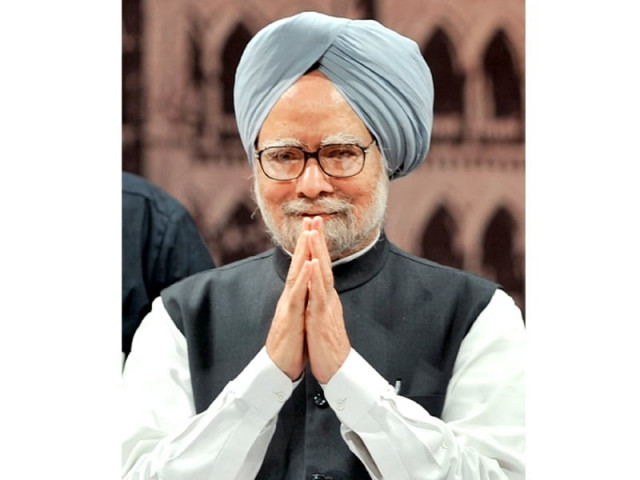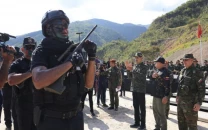Analysis: What can we expect from the dialogue?
Sceptics tend to focus on what hasn't happened and is unlikely to happen while optimists point to what has, and can.

The foreign ministers of India and Pakistan will be meeting September 8 to review progress on the “resumed” dialogue process. Today, September 7, the agenda for that meeting will be prepared by the foreign secretaries. Should we expect something significant?
Depends on what one expects and how one perceives the significance or otherwise of a process that has seen many crests and troughs since 1997-98 when the two sides agreed on a dialogue design with eight baskets dealing with a range of issues.
Sceptics tend to focus on what has not happened and is unlikely to happen while the optimists point to what has, and can.
Consider peace and security and Kashmir, the two baskets Pakistan is most interested in and, not coincidentally, India least concerned about. If progress on these disputes, Siachen, Sir Creek and Kashmir, is the benchmark, sceptics win the round. Nothing substantial is going to happen. Pakistan will open with its stated positions; India will counter with its. For Pakistan, these are disputes; for India, issues.
The sceptics can also win a second round by arguing that the Indian position on these disputes has hardened. The world situation for India is propitious. India has developed a higher degree of arrogance that comes with more space for manoeuvring. It assesses that it can tire Pakistan out, forcing Islamabad to come round to resolving the disputes/issues on India’s terms. Even if that doesn’t happen, possession is nine-tenths of law and that will continue to works to India’s advantage.
Equally, however, India wants dialogue for two reasons: it needs to get out of a simmering conflict with Pakistan because conflict is not good for economic progress and it feels that the situation has forced Pakistan to come round to putting premium on enhanced trade relations, friendly exchanges and people-to-people contact. New Delhi also feels that movement in these areas could help it pull Pakistan in on the issue of terrorism, arguably the number one problem for India.
This being so, sceptics can partially or wholly dismiss the process.
But they are wrong. Consider.
Firstly, disengagement is no policy. India has learnt it the hard way; there’s no reason for Pakistan to take the same route. Secondly, normalising relations with India forms the backbone of Pakistan’s broader policy of having friendly relations with all the neighbours within and beyond the region. Peace is an essential condition for economic progress.
Thirdly, movement on trade and investment does not in and of itself dilute Pakistan’s position on the core disputes. The difference is that substantial progress on the disputes is not a precondition for movement in areas where cooperation is possible and a consensus can be developed. This entails moving from a direct approach, that didn’t deliver, to the strategy of an indirect approach.
Fourthly, trade and investment – leaving aside technical objections – have a way of improving the environment for dispute resolution by creating interdependencies and building trust. Finally, if Pakistan were to reject improvement of relations in other areas until the core disputes are resolved, the situation on the disputes would still remain the same. The policy to find areas of mutual interest, at the minimum, affords an opportunity to both sides to be able to deal with those disputes by fashioning the right environment.
This is true for both sides. India’s insistence that Pakistan deliver on terrorism, and specifically on the Mumbai case trials, goes against the logic of a dialogue and its own insistence in other areas of the process that talks must not be weighed down by preconditions.
On the plus side, Abu Jandal did not derail the dialogue just like Pakistan’s concerns over India’s machinations in Afghanistan have not interfered with the dialogue.
The review round will look at progress thus far and give clearance for the next phase of the dialogue process. Now that Interior Minister Rehman Malik has been chucked out of the equation, the agreement on the visa regime and its new categories will likely be finalised. There will also be discussions on Indian Prime Minister Manmohan Singh’s visit to Pakistan. India wants to make the visit contingent upon Pakistan delivering something to Dr Singh, a euphemism for Mumbai case trials. That is a non-starter and implies interfering with the judicial process. Pakistan hopes that India will understand that its demand is untenable.
Published in The Express Tribune, September 7th, 2012.



1726734110-0/BeFunky-collage-(10)1726734110-0-208x130.webp)















COMMENTS
Comments are moderated and generally will be posted if they are on-topic and not abusive.
For more information, please see our Comments FAQ